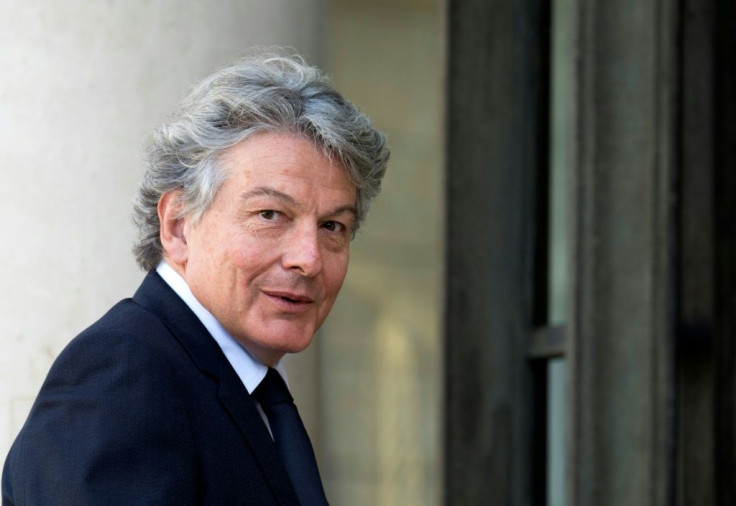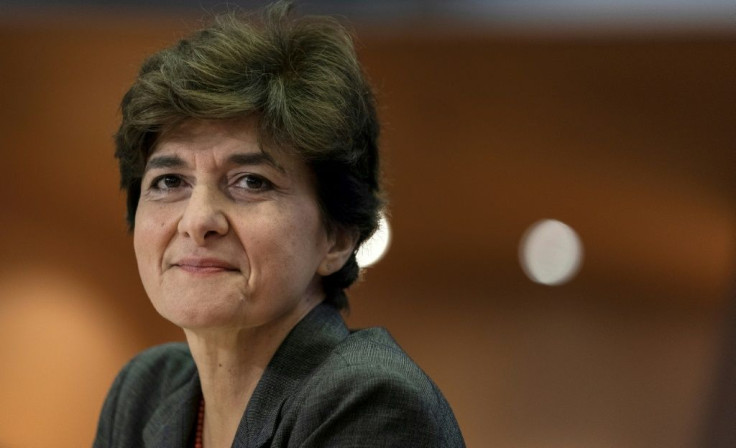After Setback, Macron Unveils New Pick For Key EU Post

President Emmanuel Macron on Thursday put forward businessman and former economy minister Thierry Breton as France's candidate for a key European Commission portfolio after his first choice was shot down by the European Parliament.
Macron proposed Breton to incoming commission head Ursula von der Leyen for the ambitious portfolio covering industrial policy, defence spending, technology and space, an Elysee Palace official said.
The portfolio, which Macron fought hard for, remains unchanged.
Macron and Von der Leyen had agreed on Breton's "profile," the official said, adding: "If we are proposing this candidate, he is suitable."
Two weeks ago, European Parliament lawmakers voted to reject Macron's first pick for the Brussels post, Sylvie Goulard, in a rare political defeat for the French leader on the European stage.
A former MEP, Goulard resigned in June 2017 from a short stint as France's defence minister after claims she and other members of the centrist MoDem party were using European parliamentary funds to pay assistants who were actually based in France.
She was questioned by French investigators in September and is also under scrutiny by the EU Anti-Fraud Office, although she has not been charged.
Breton, 64, is credited with turning around the debt-laden former state monopoly France Telecom, now Orange, and leading it to privatisation.
He has served as a director on many boards and led French computer-maker Bull as well as Thomson Multimedia before serving as economy minister under Jacques Chirac from 2005 to 2007.
He now heads digital firm Atos, a group with head offices outside Paris and in Munich, where he has doubled turnover to more than 12 billion euros ($13.4 billion) and staff numbers to 122,000.

But Atos is an IT service provider to the EU and Breton's nomination has raised questions about potential conflicts of interest.
'Complicated'
The vetting process "will be complicated, once again," said Yannick Jadot, a European parliamentarian from France's EELV green party.
"Thierry Breton is the CEO of Atos, it is a digital company that receives European grants, that is a European leader in supercomputers, also with European grants. And in his portfolio, what do we have? Digital."
Another MEP, Manon Aubry of the hard-left France Unbowed party, criticised the candidature of a boss of a listed company "that receives millions of European grants".
Macron, whose new nominee will be vetted by European lawmakers in the coming weeks, dismissed the conflict of interest concerns.
"The question that will be asked, and to which he will answer fully, is: 'Has he cut all personal ties to the company, and on which subjects will he have to recuse himself?'" the president said Thursday during a visit to France's Reunion island.
'Committed European'
The Elysee official said Breton "has solid skills in all the areas covered by the portfolio, particularly industry and high tech", adding that he is a "committed European" and "a man of action".
Breton said Thursday that he was "working on preparing for the hearings", adding he was "very honoured" by the trust placed in him.
"For Europe and for all our fellow European citizens, I appreciate the importance of the challenges associated with this portfolio for the future of our country."
The vetting of the EU's 28 commissioners, one for each member country, has taken longer than expected, and the EU executive is now expected to start its work on December 1, a month later than initially planned.
MEPs also rejected the candidates from Hungary and Romania last month.
© Copyright AFP {{Year}}. All rights reserved.



















